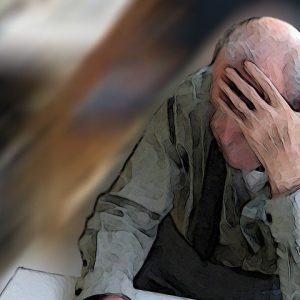
How do I “get guardianship” over my father?
By Andrew Boyer
Self Neglect is a serious and life threatening issue for seniors in Florida. When we are discussing self neglect, we’re talking about an individual who is suffering from the ill effects of neglect not caused by a second party and is in need of protective services or other services to prevent further harm. Guardianship attorneys typically get involved in these types of cases when a son or daughter ( usually out-of-state) becomes concerned about their parent’s well-being.
Usually, when clients talk about “getting guardianship” over someone, they are either talking about obtaining a power of attorney document or they are talking about a court proceeding where a judge appoints a guardian to exercise an incapacitated person’s rights.
If the person who is in need of services and protection has capacity to sign a durable power of attorney and appoint someone to manage their affairs (“an agent”), then this type of estate planning document can potentially avoid a guardianship proceeding in court.
In situations where the person does not have the capacity to sign a durable power of attorney, or there are issues of exploitation or other reasons why the finding of incapacity by a court would serve to better protect the interests of the senior, then a court proceeding may be the more preferable route. Typically, in cases like these, a close family member acts as petitioner to petition the court for a determination of incapacity and for the appointment of a guardian.
Once these petitions are filed with the court, the court appoints an attorney to represent the interests of the alleged incapacitated person and also appoints an examining committee whose responsibility it is to evaluate the alleged incapacitated person and report their findings to the court.
Between a month and six weeks later, in a final hearing, a judge reviews the findings of the examining committee and gives the alleged incapacitated person an opportunity to present a case. The judge then makes a determination of whether or not the alleged incapacitated person is or is not incapacitated. If they are determined incapacitated, the judge decides whether they are completely incapacitated or only incapacitated in a few areas.
If the court finds there is incapacity, the court will make a determination whether or not a guardian needs to be appointed for the incapacitated person or if there are less restrictive alternatives to guardianship that would sufficiently address the needs of the incapacitated person.
In some circumstances where the person already has a power of attorney document, the court may find that the power of attorney document is a less restrictive alternative to a guardianship. In this situation the court may enter an order determining the person to be incapacitated and leave the power of attorney in place as a less restrictive alternative to a guardianship.
In most situations, after a guardian is appointed, the Guardian is able to take actions to stop the self neglect and protect the interests of the ward. As soon as the possibility of guardianship is raised, it is most advisable that family members consult an experienced guardianship attorney.




